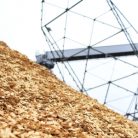Tag: biorefinery

December 21, 2017
BBI JU Stakeholder Forum brings bioeconomy stakeholders together
The BioBased Industries Joint Undertaking (BBI JU) Stakeholder Forum and project exhibition held on 7 December 2017 in Brussels, illustrated some important drivers and trends for the biobased economy in Europe today. In the sessions, both European Commission representatives as well as private stakeholders stressed the importance of an innovative bioeconomy in Europe. Estimates showed […]

September 14, 2017
Registration open for the BBI Info Day
The Bio-based Industries Joint Undertaking (BBI JU) has opened registration for its Info Day and Brokerage Event taking place on 28 April 2017, in Brussels. The aim of the event is to bring together potential participants interested in the BBI JU 2017 Calls for proposals, including SMEs and representatives from large industry and academia. The […]

Novel concepts of biorefineries on the spot
In three intensive days, the 7th edition of the Nordic Wood Biorefinery Conference (NWBC), that finished on 30 March 2017 in Stockholm, showcased the latest innovative, wood-based biorefineries, novel production processes and evolving concepts of biorefineries. A flagship concept, the industrial ecosystems around the bioproduct mill that Metsä Fibre is finalising in Äänekoski (Finland) was […]
September 13, 2017
The BBI JU Call 2017 will release € 81 million of funding for the European biobased industries
The BBI JU Call 2017 of the Bio-based Industries Joint Undertaking (BBI JU) features several topics relevant for the forest-based sector, falling under the areas of the FTP Strategic Research and Innovation Agenda. Out of 16 topics covering all possible types of actions, FTP has identified topics that address activities within ‘Integrated biorefinery concepts’ (RIA […]
BIC launches new roadmap to develop Europe’s circular bioeconomy
To help build a resource-efficient, circular and biobased economy, the Biobased Industries Consortium (BIC) has announced its new Strategic and Research Agenda (SIRA). The SIRA identifies the activities needed to speed up the development of sustainable and competitive biobased industries in Europe. The updated SIRA addresses the technological and innovation challenges facing the biobased industries, takes […]

Bioproduct mill starts up in Finland
The next-generation bioproduct mill in Äänekoski, Finland, came into operation on 15 August 2017, Metsä Group announced this week. With a budget of approximately € 1.2 billion, this is the largest investment of the forest-based industry in Finland. Pulp deliveries from the new mill to customers will begin in early September 2017. The bioproduct mill […]

December 31, 2018
Bio-based Industries Joint Undertaking
BBI JU FTP played a key advisory role in establishing the Bio-Based Industries Joint Undertaking (BBI JU), a Public-Private Partnership (PPP) between the EU and its partner representing industry, Bio-based Industries Consortium (BIC), designed to support the coherent development of Europe’s biobased economy. After the successful completion and positive results of the EU-funded research project […]

February 15, 2018
4.3 New biobased products
Rationale Today, pulp and sawn wood are the primary products of the forestbased industries. These are further refined into a spectrum of products, ranging from commodity to consumer products (see state of the art below). The emerging biobased economy, however, demands more alternatives to current fossil based products. This opens up significant opportunities for the […]

3.2 Renewable energy solutions
Rationale Energy from renewable sources meets approximately 13% of primary energy demand in the EU, with biomass playing the greatest role (over 60%, compared to hydropower at 30%). Wood-based biomass dominates biomass resources. In order to meet the EU’s 2020 energy targets, significant amounts of (woody) biomass have to be effectively converted to green electricity, […]

2.5 Resource-efficient use, reuse and recycling systems
Rationale Wood and wood-based products have the potential to be re-used repeatedly as raw material. Waste from harvesting operations and wood processing is regularly used as high-value raw material for other types of processing. Low-value treetops and branches, stumps and roots, crude tall oil and other first and second generation biorefinery products contain chemically-attractive components […]

